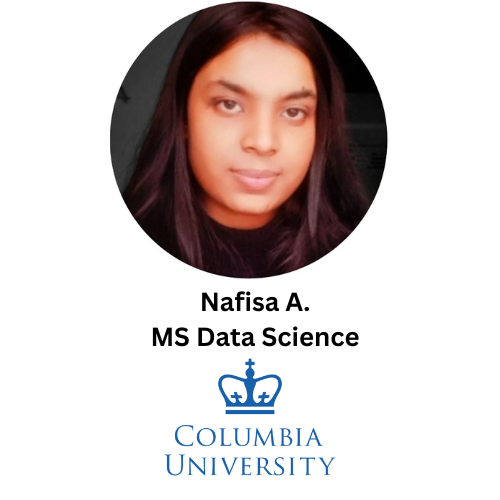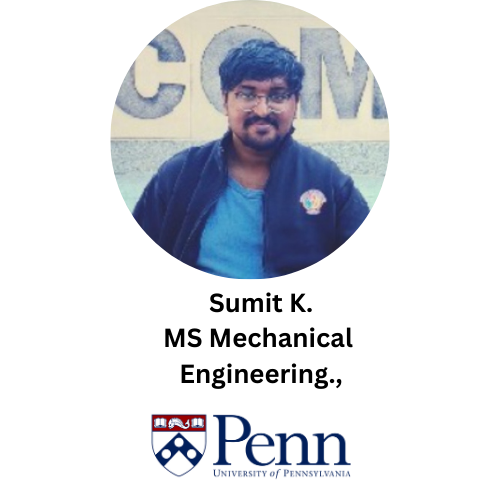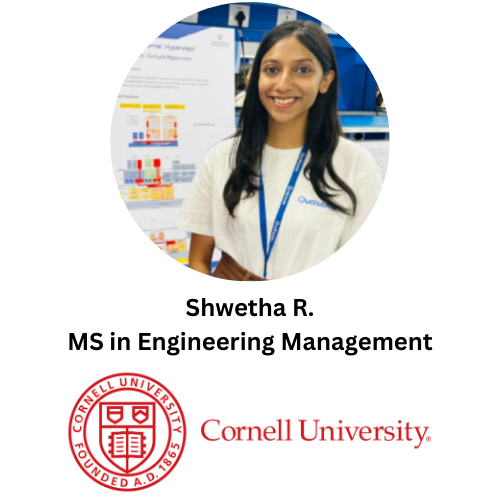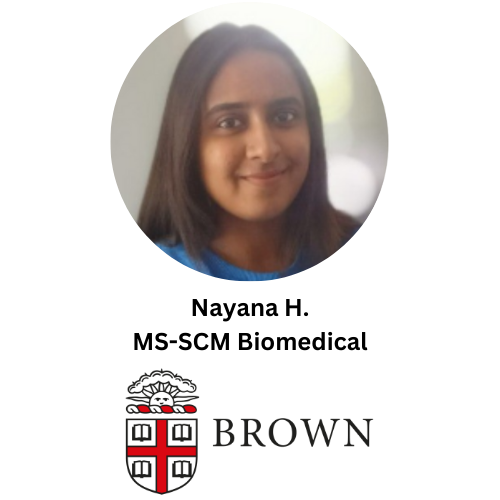Insights from an Ivy league Professor!
Dr. Siddhartha Ghosh, a Professor from Columbia University talks about his industrial experience, Ivy League admissions, academic prerequisites, industry leadership, SOP mastery, and more!
Watch Webinar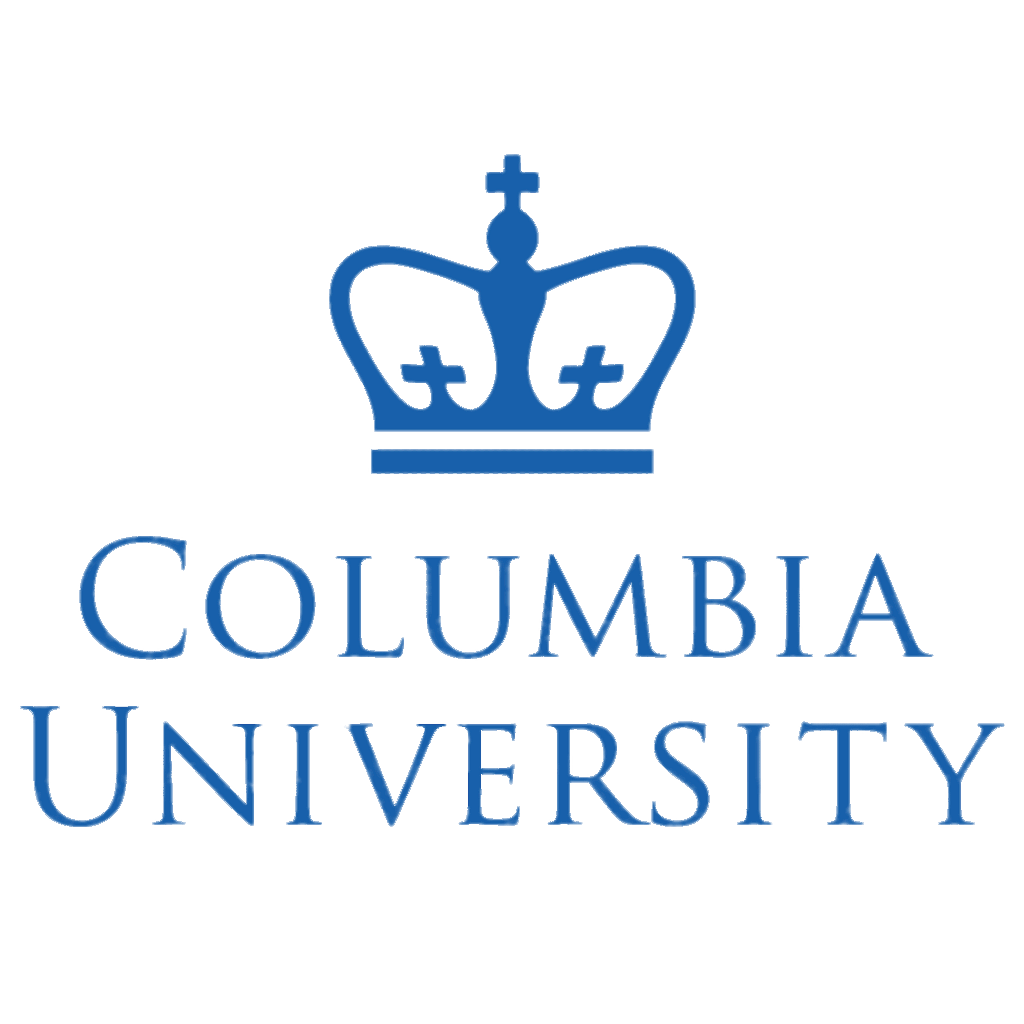
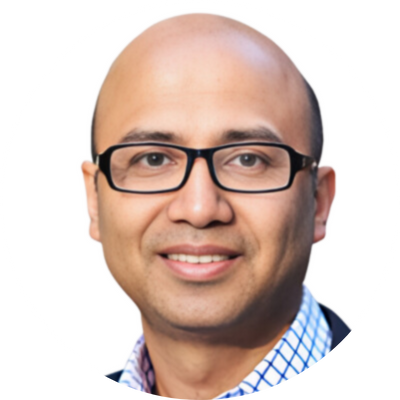
Dr. Siddhartha Ghosh,
Associate Professor,
Columbia University
About the Speaker:
Dr. Siddhartha Ghosh Dastidar is an Associate Professor at Columbia University, and has taught at the Graduate School of Business and the Department of Industrial Engineering & Operations Research. He teaches courses on capital markets and investments to full-time graduate and undergraduate students, and also in the executive education program. Sid has nearly two decades of experience in the financial services industry, both buy-side and sell-side, across asset classes and regions.

Pavithra Srinivasan,
Founder & Product Director, Galvanize
M.S., in Electrical Engineering, Stanford university
About the Host:
Pavithra has graduated from Stanford University with a 100% Fellowship Scholarship in her domain. She worked at various hi-tech companies in the U.S & returned to India with a vision to revamp the Test Preparation space with a more personalized study based program and started Galvanize. Pretty much all of the courses we offer have been personally worked on by Pavithra – giving it that elite Stanford touch.
Watch the webinar now to gain insider tips on Ivy league application and other admission techniques!
Session conducted on Friday, 21 October 2023.
Key Highlights of the session:
1.Profile Building for Ivy League:
Explored the academic and profile prerequisites for admission into ivy leagues.
2. Industry Leadership Experience:
An overview of the speaker’s industry positions, leadership roles held & their influence on professional growth.
3. SOP Mastery and other Essays:
Highlighted how a carefully written SOP plays a major role in admissions, SOP quality vs the overall strength of your profile.
4. Working Professionals:
Addressed the dilemma faced by working professionals regarding academic vs managerial LORs, exploring the significance of each in the application process.
5. GRE Scores & Alternatives:
Discussed about the GRE scores, highlighting instances where top universities, including Columbia, have waived GRE for specific programs and the alternatives considered.
6. Selective Admissions Criteria:
Uncovered the criteria behind choosing profiles for Ivy League admissions, offering valuable insights into the competitive landscape, decision-making process and the key factors that set successful applicants apart.
Our students who have received admissions from Ivy league universities.
Get your profile evaluated to know if you're eligible to get into an Ivy League university!
Explore Now!Sneak- Peak of the Q&A session!
1. What role do GRE scores play while evaluating an applicant? How does this differ from one department to another?
- Changing Role of Test Scores: Test scores, once crucial for university admission, are not as significant now. There’s a shift happening.
- Pandemic’s Influence: Because of the pandemic messing up testing plans, many schools now let students decide if they want to share their test scores or not. This shows that these scores are becoming less important.
- Confidence vs. Test Scores: It seems like students who feel confident about their academic and test-taking abilities are more likely to share their scores. Meanwhile, others who excel in different areas are questioning if scores are really necessary.
- Bigger Picture in Admissions: Universities abroad are now paying more attention to the complete picture of applicants, not just their test scores. They want to see a mix of skills and accomplishments, showing that applicants are well-rounded.
2. What steps one must take to build one’s overall profile for an Ivy League admission?
Complexity:
Admission to Ivy League schools is intricate, requiring a strategic plan for both self-financing and financial aid.
Requirements: Unlike exams like JEE, the Ivy League admissions process goes beyond high scores. A compelling SOP and securing strong LORs are vital.
Admission Challenges: The process can seem like a lottery with so many competitive profiles. That’s why it’s crucial to apply broadly and have reliable backup plans.
3. When looking at so many excellent profiles, how do you choose which one makes the cut? What are the key factors based on which these decisions are made?
- Navigating the competitive college admissions process involves some key strategies. Firstly, understand the differences in how you apply for undergraduate and graduate programs. For undergrad, they focus on things like your curiosity, so keep that in mind. Be aware that many applicants seek advice to improve their applications. Also, be ready for some people to exaggerate or embellish their achievements when applying.
- Highlighting things you’ve actually achieved is crucial. Showcasing real accomplishments, like successful projects or a popular YouTube channel, makes your application stronger. It’s important to share unique details that make you stand out. Don’t just talk about common achievements; emphasize what makes your accomplishments special.
- Try to have a balanced profile with both well-rounded aspects and standout features. Being involved in various areas is good, but having something exceptional, like an outstanding project, makes your application more memorable. The ultimate aim is to leave a lasting impression. Make your application memorable by showcasing what makes you unique, increasing the chances of being remembered in a positive way by the admissions teams.
4. What is the role of English Proficiency Tests (TOEFL, IELTS, etc) when evaluating an applicant? What tests are accepted at Columbia for this purpose?
Don’t overthink it—just see it this way: if your English is good, you’re likely to do better in the TOEFL than in the GRE. The TOEFL sets a minimum standard, making it somewhat easier because it assesses if you’re okay with English. It includes listening and speaking sections, providing a sense of how well you can follow in a classroom. While it might make you nervous, it’s crucial to be comfortable and express yourself clearly, especially in an international setting. Nowadays, with various shows and recording tools available, the speaking section is less intimidating. Practice makes perfect, so don’t stress too much—record yourself, and you’ll improve with each try.
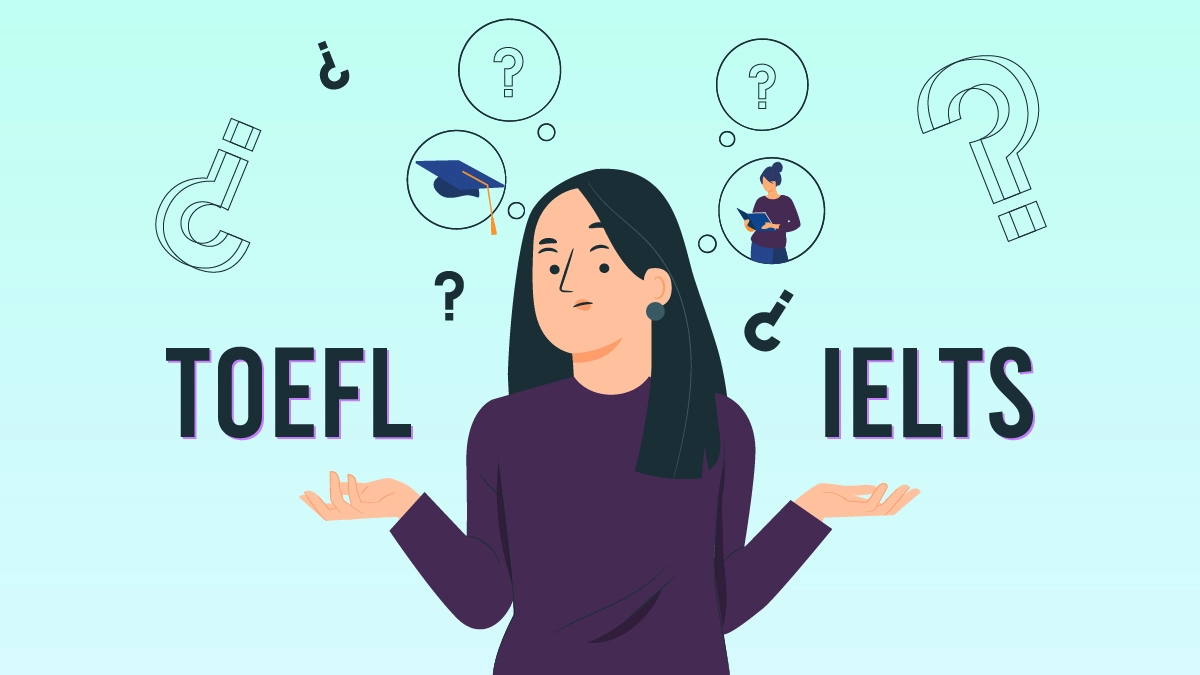
5. What are the important aspects that reviewers look for in an SOP?
-
SOPs for graduate programs are typically read by academic departments, so make them professionally specific and technically sharp. Provide precise technical details and ensure the content is concise and to the point. Keep your story consistent and explain how the program is beneficial to you. Do not clutter your resume with too much information; choose a few highlights to outshine your uniqueness and create a narrative that differentiates you from your competitors.
-
SOPs matter most at the margin, especially for profiles that are good but not exceptional. While the overall profile holds more weight, a well-crafted SOP becomes crucial in competitive scenarios. Be cautious with diversity statements, avoiding the exaggeration of personal backgrounds or experiences.
- Recent legal rulings, including one related to Harvard, underscore the need to accurately define diversity statements. Seek professional advice to draft these essays effectively, providing context to your application without violating legal standards. Diversity statements are an opportunity to share life experiences, but avoid making them the sole focus; use them to enhance your overall narrative. Be mindful of legal considerations, especially in light of recent discrimination rulings. Understand the boundaries of what can be highlighted in diversity statements to comply with admission regulations.
6. Can a student apply to 2 programs in the same year/ intake? What are some typical examples of such programs and how do students’ backgrounds qualify them to apply for both programs?
-
Be clear: While it’s common for strong candidates to be suitable for various programs, caution is advised. Applying to multiple programs without a clear preference or understanding of each program’s unique offerings may raise concerns.
-
Recommendations: Reach out to admissions officers, alumni, and current students for insights before applying. Thorough research beforehand can address questions that may arise later in the process.
-
Thoughtful Response: When questioned about applying to multiple programs, having a thoughtful response is crucial. Lack of a clear preference may indicate a need for more research or uncertainty about career goals.
-
Considerations: Apply to multiple programs only with a compelling reason and after thoroughly considering specific benefits in relation to career aspirations. Understand the developmental opportunities each program provides.
Note: Applying to multiple programs is possible, but careful consideration and thorough research are essential to ensure alignment with career goals and program offerings.
6. What role do GRE scores play while evaluating an applicant? How does this differ from one department to another?
- In the past, getting good scores was a big deal for getting into college, but things are changing. Because of the pandemic, standardized testing took a break, and now, we’re not sure how crucial those scores really are. Many schools are letting applicants choose whether to include their test scores or not.
- Even though having a good score can boost confidence, it seems like scores are not the deciding factor anymore. Talking to students applying to college, especially in the U.S., we see a pattern. This change suggests that while scores still matter sometimes, they’re not as important as they used to be. Colleges are looking at the bigger picture of an applicant’s profile. It’s like they’re saying, “Scores are nice, but what else can you show us?“
- Even for international applicants, some schools may care about scores, but there’s no one-size-fits-all rule. In short, the feeling is that test scores are becoming less important, and applicants need to be smart about handling all parts of the admissions process. It’s not just about doing well on a test; it’s about presenting yourself in the best way in every aspect.

7. Please share your experience of studying at Columbia Business School and how it has uplifted your profile.
“I’m not intending to criticize the US education system, but there are differences worth noting, perhaps a form of criticism. In India, teachers often play the role of mentors, taking an active interest in students’ progress. However, in larger schools in the US, teaching is more transactional – instructors show up at designated times, deliver content, answer questions, and leave. In the US, students are presented with a variety of courses, some potentially duplicative, and the responsibility is on them to figure out , identify valuable content, and work diligently to understand the concepts. Unlike India, where colleges follow a fixed curriculum, the independence of each university, like Columbia, means exams and teaching styles can vary. Consequently, students must take charge of their learning journey, fostering a higher level of self-motivation compared to the more guided approach in India. Reflecting on my experience at Columbia Business School, it was undeniably positive. The school provided an excellent environment, allowing me to make lasting friendships and build a valuable network that has been important in my career. Despite these differences, the independent and self-driven nature of education in the US has its merits, and my time at Columbia has been an enriching experience.”
-Dr. Siddhartha Ghosh
Meet the Team!

Pavithra Srinivasan
Co-founder & Head of Customer Experience
M.S., Stanford University
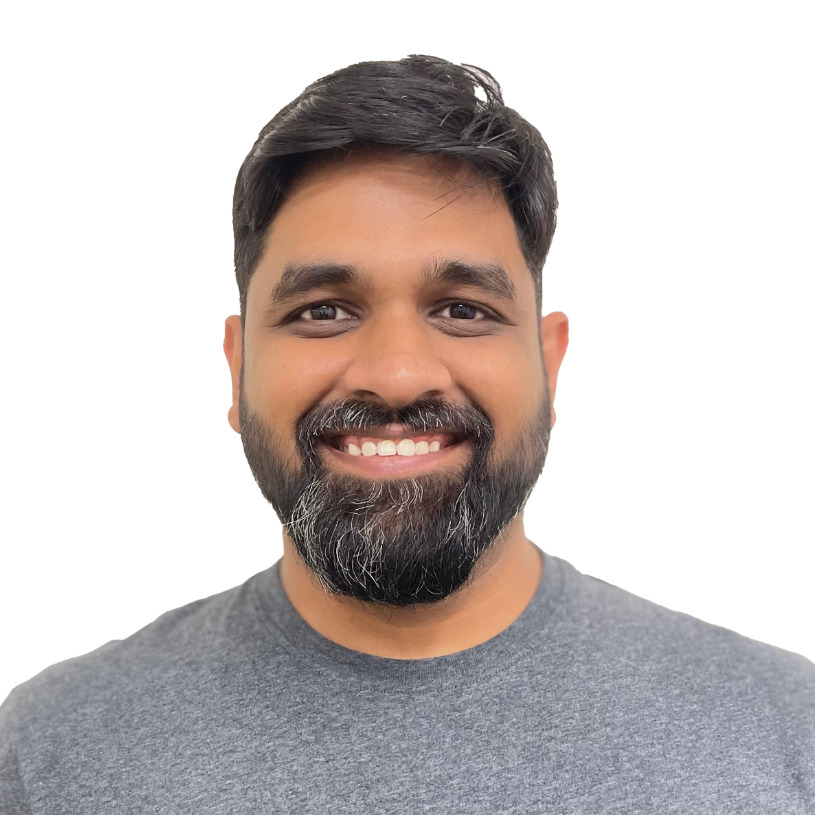
Sriram Venkatraman
Co-founder & Chief Product
Architect
B.Tech., IIT Madras

Sowmya
Subramaniam
Head of Academics
M.Sc, Maths , IIT Madras

Jayanthy
Ramakrishnan
Head of Admissions
